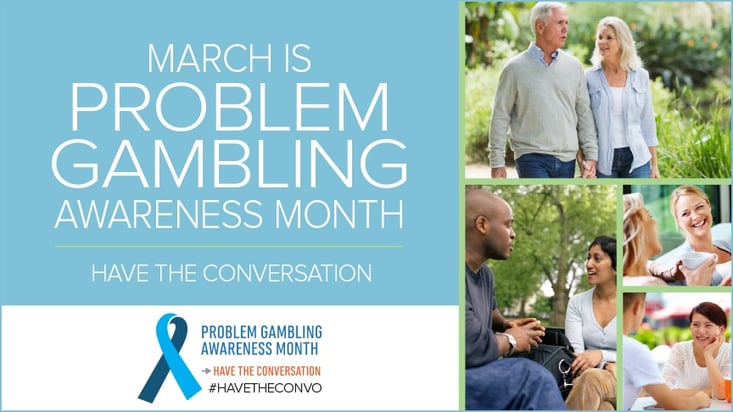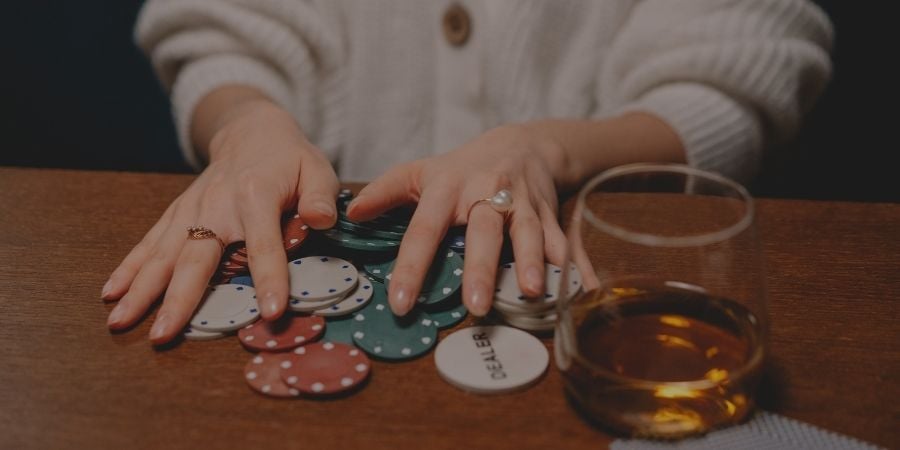By Rick Benson
March is Problem Gambling Awareness Month. This is an awareness month that doesn’t always get a lot of social awareness because it’s an issue that still carries a lot of stigma and shame, it isn't always understood, and it doesn’t usually come with a “face” that we feel emotional ties to such as sick children or terrible accidents. Fittingly, an important theme around Gambling Awareness Month is “Have the Conversation.”

The goals of this year’s campaign are to increase public awareness and screening for problem gambling. Prevention, treatment and recovery services for compulsive gamblers are often overlooked in the primary care network and there needs to be more awareness to encourage better screening.
Many people who struggle with or know someone who struggles with compulsive gambling think of it as a “habit” or “hobby” that can be broken at will. That is often not true. Problem gambling is an addiction and like any addiction, it can require professional treatment to work through and overcome. If you or someone you know is struggling with a gambling addiction, the first step is to have the conversation about gambling and addiction.
The National Council on Problem Gambling (NCPG) found that nearly 80% of Americans gambled in the past year. Of those, at least 6 million people will experience serious problems with their gambling. Opportunities to gamble seem to be increasing as more and more states expand their casinos to generate more revenue. Online and mobile gambling is increasing as technology progresses and the next betting opportunity fits in the palm of your hand. Unfortunately, problem gambling research and awareness isn’t keeping pace with the gambling expansion. The gap between the issues surrounding compulsive gambling and availability of treatment are widening.
Although gambling addiction doesn’t get as much press coverage as drug and alcohol addictions, the effects can be just as devastating. Problem gambling destroys families, leaves people financially crippled and, in some cases, can lead to suicide.
The good news is that there is help available. If you are struggling with a gambling addiction, talk to someone. Have the Conversation. Reach out to a treatment facility. Speak to your doctor. Go to a support group like Gamblers Anonymous or Gam-Anon. If you’re concerned that your loved one may have a gambling addition, talk to them about it.
Too often gambling is a “hidden addiction” that goes unnoticed by family and friends until the signs become unmistakable. Bringing awareness to problem gambling, the signs, prevention, and treatment options, can help those struggling. Gambling addictions are preventable and treatable. We just need to have the conversation.
#HaveTheConvo




